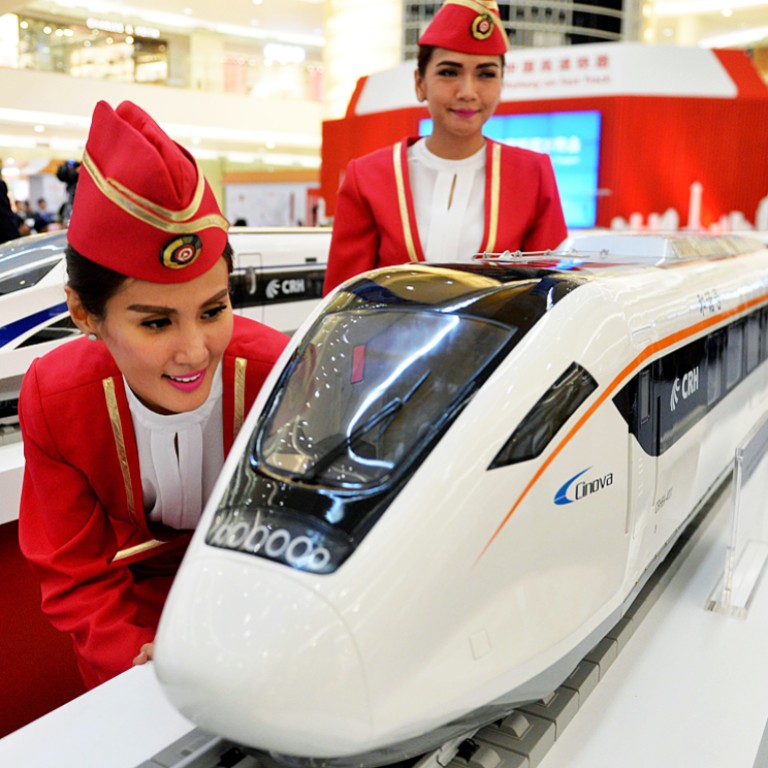
And the winner is … nobody: Indonesia scraps high-speed railway project after fierce bidding war between China, Japan
In a stunning conclusion to heated discussions over whether Japan or China should build Indonesia’s first high-speed rail project, Jakarta abruptly scrapped the entire project and announced it was instead eyeing a medium-speed train service for the route.
The revelation came after President Joko “Jokowi” Widodo hinted earlier on Thursday that China’s proposal, which did not require a financial guarantee by Jakarta, might have been chosen over Japan’s, citing financing concerns.
But Coordinating Minister for the Economy Darmin Nasution told reporters after a five-hour meeting with other ministers on the rail project that the president decided the high-speed service is now not needed on the proposed line connecting Jakarta and the West Java provincial capital Bandung.
Nasution said that the link is relatively short at around 150km, not sufficiently long for the high-speed train to sustain the envisaged top speed of 300km/h, adding that the cost for the slower service would be significantly lower.
“Although the speed could be 300km/h, the train would not be able to reach the maximum speed, because before it reaches the speed, the brake has to be put on,” Nasution said.
“So, we only need a train with the speed between 200km/h and 250km/h,” he said. “Therefore the president decided we do not need a high-speed railway link. A medium-speed railway is enough.”
According to the top economic minister, the time difference between a high-speed and a medium-speed service will only be up to 11 minutes, while the cost for the slower train will be 30 per cent to 40 per cent less.
To develop a medium-speed railway network, Nasution said that the government will set up a team to work out terms for a contract, and Japan or China can submit new proposals in line with the terms to be laid out.
“It will be designed as a business-to-business cooperation. After the two submitted the proposals, we will pick the better one. The more efficient and better quality proposal will be chosen, but if [during the construction], the winner fails to conduct their work, the project will be taken over by the other,” he said.
On Thursday, Jokowi received a recommendation from a group of ministers who evaluated the feasibility studies of Japan and China. While the president did not name the winner of the project, he appeared to stick to the original concept of a high-speed rail link.
He only said the project must be free from state budget funding, including government guarantees, and would prioritise high use of local materials and services for the construction of the infrastructure and the development of the train system.
Only Japan and China made comprehensive feasibility studies to enter bids for building the link that would connect the two cities in 36 minutes under both countries’ plans.
The Chinese proposal did not call for a government guarantee, whereas Japan’s proposal did. Japan presented a new proposal last week with greater planned use of domestic goods and services.
According to its feasibility study, Japan was ready to begin construction in 2016 and would take five years to build the system, including a one-year trial operation period.
China said it could start construction a month after the groundbreaking and finish within three years.
